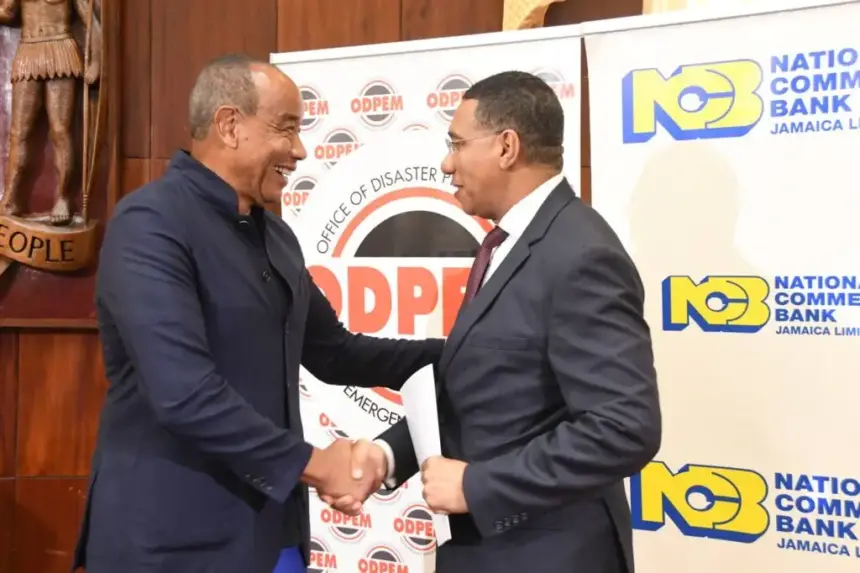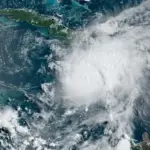PM announces intention as NCB launches $300-million disaster relief fund
WITH Jamaica being hit by “some form of natural disaster” almost every two years over the last eight years, Prime Minister Andrew Holness says the Government intends to “mainstream climate resilience” in the budgeting process to ensure that the country is not forced to borrow when disasters hit, as it has done in the past.
“We are mainstreaming climate resilience in our budgeting process by building buffers and reserves and by literally budgeting for storms so that when climate events happen we are not forced into a position to borrow. We may borrow, but we are not forced into borrowing. What happened before was that every climate event pushed us into more borrowing, so a part of our debt trap was as a result of having to borrow to recover from climate events. So, we are trying to avoid going down that trajectory,” Holness said on Monday during the official launch of National Commercial Bank (NCB) Jamaica Limited’s Building a Better Jamaica Foundation at Jamaica House in St Andrew.
The foundation’s first initiative is disaster relief aid being mobilised to help Jamaicans devastated by Hurricane Beryl.
According to Holness, Hurricane Beryl — which swooped down on the island last Wednesday and travelled along the south coast — caused, “a different kind of damage” than that wreaked by Hurricane Gilbert in 1988, with which it has been compared.
“The impact of the hurricane — though not a direct hit, a glancing blow — has come at a period of time when we have been experiencing for the last eight years, almost every two years we have been hit by some form of natural disaster… we have had all kinds of tropical storms and depressions… all of these have a fiscal impact. We couldn’t look at Beryl in isolation. For the past eight years or so roads have been flooded out, blocked, scoured; landslides; bridges damaged — and those costs keep piling up. We try to repair but we can’t repair all,” Holness said.
“So, one climate event would not be the total aggregator of the cost of the events to us; it is important and instructive, therefore, that the country understands how the Government is treating with this,” he said.
Noting that Jamaica’s brand attracts global and local philanthropy when crises hit, Holness emphasised that while this helps with the initial response, “the country has to have its economic and financial house in order to carry out the recovery”.
“So, we have a long-term plan and well-laid plan for this. There is a perspective that the recovery should be quick, and there are those with the expectation that the recovery should be the next day, but you can have a quick recovery but not a full recovery. What we want is a sustainable recovery in every dimension of the crisis,” Holness declared.
Said the prime minister: “The dimension of the crisis that we are looking at today is how we manage public, corporate, civic society and philanthropic donations. It is important that the Government creates a space where the corporate philanthropy and civil society philanthropy can be coordinated and organised.”
He insisted that accountability is supreme, saying that the coordinating platform under the initiative which has seen NCB partnering with Office of Disaster Preparedness and Emergency Management (ODPEM) through a disaster fund website, will be a critical feature going forward.










